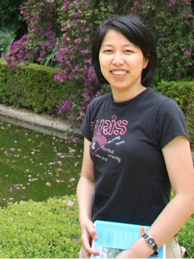Time (时间): 4pm-5pm, 2015-12-07 (Monday)
Title (题目):: Weighting beyond Horvitz-Thompson in Causal Inference
Location (地点): 伟清楼209 (Center for Statistical Science, Tsinghua University)
Speaker (报告人): Fan Li, Associate Professor of Statistics, Duke University.

Abstract (摘要):
Covariate balance is crucial for an unconfounded descriptive or causal comparison. However, lack of balance is common in observational studies. This article considers weighting strategies for balancing covariates. We define a general class of weights---the balancing weights---that balance the weighted distributions of the covariates between treatment groups. These weights incorporate the propensity score to weight each group to an analyst-selected target population. This class unifies existing weighting methods, including commonly used weights such as the inverse-probability weights as special cases. General large-sample results on nonparametric estimation based on these weights are derived. We further propose a new weighting scheme, the overlap weights, in which each unit's weight is proportional to the probability of that unit being assigned to the opposite group. The overlap weights are bounded, minimize the asymptotic variance of the weighted average treatment effect among the class of balancing weights. The overlap weights also possess a desirable small-sample exact balance property, based on which we propose a new method that achieves exact balance for any given target population. Two applications illustrate this method and compare it with other approaches. This is a joint work with Kari Lock Morgan and Alan Zaslavsky.
Bio
Fan Li is Associate Professor at Department of Statistical Science, Duke University. She got a BS in Mathematics from Peking University in 2001, and PhD in Biostatistics from Johns Hopkins University in 2006. Before joining Duke in 2008, she did a two-year postdoctoral fellowship at Harvard University Department of Health Care Policy.
Her main research interest in statistical methodology is causal inference, that is, designs and methods of analyses to evaluate treatments, interventions or actions in randomized experiments or observational studies, and their applications to social sciences, economics, health policy, psychology and epidemiology. She also have a strong interest in statistical methods for big and complex data, such as neuroimaging data, with an emphasis on developing advanced Bayesian inferential and computational methods. Her other interests include missing data, variable selection, small area estimation.
